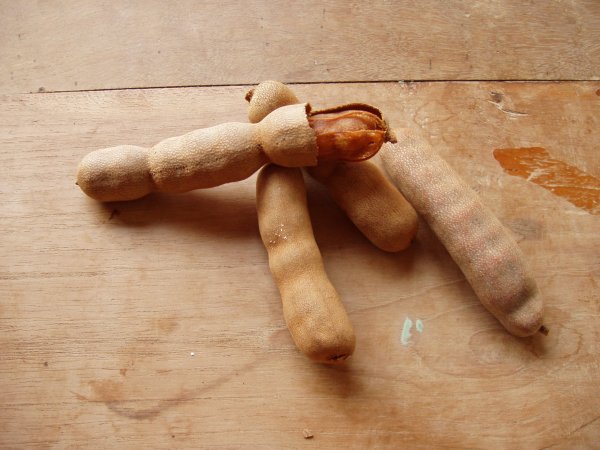Culture and Society: Superstitions and Folklore
General
Considered as the bastion of Christianity in Asia, the Philippines is both a religious and superstitious nation. Christianity has been the predominant religion in the Philippines since the Spanish colonized the country in the 16th century. However, the Filipinos have always combined Christianity with animistic beliefs and practices. When the Spanish colonizers arrived, they found the natives worshipping nature spirits who could be contacted by community shamans. Sickness and bad fortune were believed to be caused by evil spirits, while good weather and fertility were caused by the blessings of good spirits or ancestors. When the Filipinos were converted to Christianity, they carried over these beliefs on some level. The good spirits became the saints, the traditional rituals became the Holy Mass and other Christian rituals, and the shamans became the priests. The retention of some animistic beliefs and practices blend to give the practice of Christianity in the Philippines a unique folk variety.
Muslims in the Philippines likewise incorporated many of their native beliefs and practices into Islamic traditions. Muslims comprise about 5 percent of the population and are mostly located in Mindanao (southern Philippines). They offer sacrifices to spirits for good health, happy family life, and bountiful harvests. Traditional elements are also blended for birth, marriage, and death rituals.
Specific Superstitions
Anting-Anting
Filipinos often carry amulets, talismans, and charms, called anting-antings, which are usually strange and rare objects that come from nature- bizarre tree roots, crocodile teeth, guinea bird horns, or peculiar stones. Much mysticism goes into the origin and the making of the anting-anting, which originated from the Filipinos’ instinct for self-preservation and the desire for supernatural powers to be ever present.
Owners must not brag about their anting-antings to preserve their potency. The anting-antings must not be worn while having alcoholic drinks, bathing, or during sexual intercourse or they will lose potency totally. Some anting-antings lose their power when touched by women.
Before anyone can obtain an anting-anting, it has to be "earned" from its elemental keeper or guardian, who is typically a giant. The elemental keeper will subject an anting-anting seeker to a series of attacks while assuming the form of different animals or monsters. The anting-anting seeker must survive the attacks to be deemed a worthy anting-anting owner.
Some anting-antings are similar to the mustika pearls of Indonesia in that both can be obtained from animals, plants, and trees. The anting-anting acquired from a dayap (lemon), for example, provides good luck in business. The banana anting-anting is obtained from the tindok (a type of banana) blossom while the moon is full. This owner is said to obtain extraordinary strength and good looks.
Any plant known to bear several flowers but inexplicably produces only one flower is a source of anting-anting. The flower is believed to contain an anting-anting in the form of a stone. It is said that this flower will only be visible to the rightful owner. The owner must carry the anting-anting around or swallow it to receive protection from enemies or detect if a person is lying. This particular anting-anting is cumbersome to own because it saps its owner’s strength.
A mutya is a precious gem with mystical powers and is the Tagalog’s (people in northern Philippines) version of the anting-anting. Specific uses include the following:
- To the Marinduqueños (natives of Marinduque in northern Philippines), the mutya sa igat (eel) enables owners to always escape tight situations.
- The mutya sa langka (jackfruit) brings good luck in business.
- The mutya sa kalabaw (water buffalo) gives extraordinary strength.
- The kusul plant mutya gives invulnerability to its owner.
- The mutyang yatot is said to bring luck in thievery and robbery. Owners will always know where the money is hidden.
- The mutya sa bato (stone) consisting of a small stone inside an even larger one gives the power of invincibility.
- The most popular Tagalog anting-anting is the mutya sa sampaloc (tamarind), which grants the wishes of its owner.
Some anting-antings can be made by carefully following certain steps. To obtain an invisibility anting-anting, one must place a black cat inside a clay pot and bury it on Good Friday near the door of a church or at an intersection where three roads meet. On the next Good Friday, ask a small child to exhume and wash the bones of the cat. The anting-anting seeker must then try putting each bone inside his mouth to determine which one would help him attain invisibility. In Cabalian (southern Leyte province in central Philippines), the black cat is burned and its ashes placed inside a bottle. To attain invisibility, some of these ashes are placed under fingernails. These ashes may also be placed on a girl’s head to charm her.
It is said that fishermen in the Visayan region (central Philippines) place the hair of a mermaid inside the bamboo part of their fish traps as a charm to catch many fish. Below are some other anting-antings that are easier to acquire:
- The kneecap of a corpse from a cemetery acquired at the stroke of midnight is an anting-anting that provides invisibility.
- The human skull can also be used as the tanong anting-anting of invisibility. To make one, skulls are gathered in a cemetery on a Friday night and prayed over until midnight.
- In Leyte and Samar (provinces in central Philippines), the heron’s egg is an anting-anting for invisibility.
- In Cebu (an island in central Philippines), fishermen and hunters keep the eyes of wildcats as anting-anting for abundant catches.
- The kouo-kouo (Ignatius bean), generally found in Catbalogan (central Philippines), is worn around the neck to protect against poisoning, contagion, evil spells, and philters.
- The Negritos (aborigines of Pinatubo in northern Philippines) wear a string of dried berries called a-gata around their neck as a charm against stomach pains. In nearby southern Zambales, the a-gata is used as a charm against snakebites.
- People in the Visayan region also believe that church bells become soft at midnight on Holy Friday. Biting off a piece of the bell and swallowing will result in the ability to jump as high as ten feet up or across.
Gambling
Filipinos also have anting-antings for gambling. Owners must keep their possession of anting-antings a secret to maintain their winning streaks.
- The beak and nails of a kingfisher is an anting-anting for cockfighting.
- A white land turtle with its shell broken by a twig is a gambling charm.
- A lizard with two tails also brings good luck to any kind of gambling. Two, four, six, eight, and ten are the lucky numbers for the owner.
- To acquire a gambling charm, go to a cemetery in the middle of the night and play cards with ghosts. You must find a way to run away with the ghosts’ winning card because that will give you luck in gambling.
Owners recharge their anting-anting by going to the cemetery every Good Friday. They can pass on their anting-anting to someone whom they think is deserving. Sometimes an anting-anting does not get passed on because the owner feels that no one deserves to inherit it. The anting-anting then disappears forever.
Love Potions
Gayuma (love potions or philters) can also be categorized as anting-antings. In the Ilocos region (northern Philippines), love charms should not be brought to wakes or funerals or they will lose their potency.
- One way to make a gayuma is for a man to abstain from bathing for a week. When he finally takes a bath, he should collect the residue from his body inside a bottle and try to mix this in the food of the sought-after woman.
- The Ilocanos (natives of Ilocos) extract the oil of the bogbogtong, a rare lone coconut facing eastward. It is said that since the coconut is a symbol of good luck and that the east is where the sun rises (the symbol of love at first sight), the bogbogtong is an ideal gayuma ingredient.
- The Negritos, a semi-nomadic group in Southeast Asia with one of the purest genetic pools of DNA, use the yellow moss growing in tall trees as gayuma. It must be rubbed secretly onto the skin of the desired woman. The moss can also be burned with the smoke blown in the direction of the woman.
- The female Maranaos (natives of Lanao in southern Philippines) concoct a love potion called katao by mixing coconut oil with the doka tonoi or an extract from a plant that only grows in the jungles of Lanao. The mixture must be secretly slipped into the beverage of the sought-after man.
- Another version of the katao philter that a Maranao woman can make consists of a mixture of her nails, some strands of her hair, and the powdered bones of mice. The katao must be mixed in the food of the man she desires.
Authentic anting-antings are so rare that those that are available for sale are most probably fake. With a lot of secrecy involved in the making and the ownership of anting-antings, it is difficult to ascertain if anting-antings are genuine.
Prominent people who were believed to be owners of anting-anting include: Gregorio Aglipay, founder of the Aglipayan Church; former Philippine President Ferdinand Marcos; and two self-styled Robin Hoods Leonardo Manecio (a/k/a Nardong Putik) and Santiago Ronquillo (a/k/a Tiagong Akyat).
Farming Rituals
Farmers from different regions of the Philippines each have their own sets of rituals and superstitions governing almost all facets of agriculture. These were formed as a means of communicating with nature and its many supernatural guardians. They believe that nature provides signs when to best carry out specific activities.
Cebu Harvest Practices
Farmers in Cebu (an island in central Philippines) commission the tamblan (shaman) to prepare a variety of bayang or buhat (food offerings) before cultivating the land to ensure a good harvest. When the moon is full, farmers take off their shirts and roll on the ground for a good harvest.
During harvest season, the tamblan prepares the pilipig, a mixture of fruits and different grains ground together using a huge wooden mortar and pestle. A babaylan (priestess) is asked to pray over the pilipig at midnight and to offer it to the spirits.
If the harvest is lean or bad, the tamblan prepares an offering to the spirits consisting of biku, budbud (sticky rice delicacies), a dozen chickens, grapes, rice grains, tobacco, and tuba (alcoholic drink) and puts these under a dalakit tree.
In rice planting, the taga-taga (an insect with prominent antennas believed to be the soul of the rice plant) must not be hurt or you can expect a bad harvest. If the tail of the taga-taga points upwards, there is a strong chance that the harvest will be a good one.
In corn planting, the first three rows are the last to be sown. The seeds must also be planted at sundown. Farmers with broken or missing teeth are not allowed to plant seeds for fear that the corn might grow with sparse or inferior kernels.
In coconut planting, seedlings must be planted at noon when the sun is directly overhead so that the coconut trees will bear fruit even if it has not grown very tall. The seedlings must be bathed with the light of a full moon for them to grow big and full.
Cebu Fishing Rituals
Cebuano (a native of Cebu, an island in central Philippines) fishermen call on the mananapit (shaman) during a full moon to pray and to bless their fishing nets and traps with herbs and incense for a good catch. They mutter, "Tabi po," when at sea to seek permission from the spirits before they catch fish. When using a new trap, half of the first catch is thrown back to sea for good luck. To avoid bad luck, they must return home using the same route as when they first left the port. Fishermen also attach small copper keys to their belts as amulets against big man-eating fish. Cebuanos also believe that turtle meat increases a diver’s stamina underwater.
Isneg Planting Rituals
The Isneg (a tribe in Luzon region in northern Philippines) base their activities on signs observed from the swidden, an area cleared by slashing and burning. The tribesman begin clearing the field only after they see the leaves of the lumba tree start falling off, or when the red bakakaw herb and tablan coral tree start to blossom, typically in February or March. The amital vine, a certain kind of plant, must not be touched during the clearing or a member of the offender’s family will die. The field-burning work begins when the lumba starts bearing fruit. The rising of a little whirlwind from the burning field is taken as a sign of good harvest, as the Isneg believe that this is the spirit of the deity Alpugpug manifesting himself.
The agpaabay ritual is performed three days prior to the planting. A man and a woman throw rice grains on the field and remind the rats not to eat them. The woman performs an offering ritual in the afternoon. At that time, a few seeds are dropped into a hole on the ground, which is then covered with the taxalitaw vine and the sapitan herb to ensure that the crops will grow healthy. It is the women who are responsible for planting on the third day. The rice is harvested around September. Wood gathered previously after the field burning is used to cook the harvested rice to signify the completion of the swidden’s ritual cycle.
The harvest begins by spilling the blood of a pig while the dororakit (shaman) prays to the spirits. The Isneg then perform the pisi ritual by offering rice pudding to Pilay (spirit of the rice).
Romblong Rituals
Farmers in Romblon (an island in northern Philippines) commence planting on the feasts of All Saints and All Souls. Before embarking on the task, they bury one strand of hair, three small peppers, and three pieces of kinhason (sea shells) together with the tubers or roots they are going to plant inside each of the three holes on the ground while reciting "Hail Mary."
The farmers of Romblon also observe the following superstitions:
- No one must perform heavy work during Holy Week, especially on Maundy Thursday, Good Friday, and Holy Saturday.
- Before planting rice, wine or tuba (an alcoholic drink) must be offered to the apo (spirit of the earth) by spilling some tuba on the ground.
- When rice plants start bearing grains, firecrackers are lit to make the growth even better.
- Hog growers castrate their pigs the day before a full moon to make them fat and healthy.
- The first fish that a fisherman catches is thrown back into the water to allow it to tell the other fish that it is safe to get caught inside the fisherman’s trap.
Several of these rituals and superstitions are still being practiced today by farmers in the countryside far from modern influences.
Monsters and Supernatural Beings
Supernatural beings and monstrous creatures constitute one of the most fascinating aspects of Filipino folklore. Many stories exist about how certain practices and rituals must be followed to achieve a harmonious existence with the unseen elemental beings that live among them. A breach in this delicate balance affects the health and fortune of the offending party.
There is another group of supernatural creatures that mortals fear because they prey on human beings. These creatures come out and prowl at night or choose certain isolated places as their abode, waiting to victimize unsuspecting wanderers. To combat these supernatural creatures, Filipinos acquire anting-antings or amulets guarded by these beings themselves. Albularyos (quack doctors) are also commissioned to perform appeasement rituals or go on mystic battles using white magic.
- The most feared nocturnal creature is the aswang. There are five classifications of aswangs: the self-segmenters, changelings, hexers, bloodsuckers, and the corpse eaters. The aswangs appear as humans, usually female, and transform into their true form and prowl during a full moon.
- The manananggal (self-segmenter) is a sorceress with bat-like wings. Upon finding an isolated location, it leaves its lower torso and then prowls for unborn children. Manananggal perch on roofs while seeking out the wombs of their unsuspecting victims with their elongated tongues, which bore through the roof to suck on the fetus inside the mother’s womb. To kill self-segmenters, one must find the lower body and sprinkle it with salt, vinegar, or garlic. This will prevent the self-segmenter from returning to its original form, and upper half shall be left flying around until the rays of the morning sun hit and disintegrate it.
- Changelings transform themselves into a creature that would best help ensnare its unsuspecting victims, usually pregnant women. They then crush victims with their hair and tear them apart with their fangs or horns.
- Barangan (hexers) cast spells on people they dislike. If you anger a hexer he/she will put bugs, shells, seeds, stones, or pieces of broken glass inside your body using witchcraft.
- The bloodsuckers appear as short and very attractive women that lure males. They marry off with their unsuspecting victims and feast on their blood each night by biting their necks, much like vampires, until they die.
- Busaw (corpse eaters) assume human forms and live among them. They flock in trees near graveyards waiting for bodies to be buried and dig up the corpses at night to feast on them. Corpse eaters also raid funerals and snatch the corpse. Busaws give out some of the meat to their unsuspecting neighbors. Once mortals have unknowingly eaten the meat, they turn into ghouls as well
- The kapre is a tall, dark, horse-looking figure that resides in big old trees smoking a huge cigar. Although generally harmless, it can be seen at night to frighten passers-by. There is an old belief that if you catch a kapre, gag it, and tie to it to a tree, you can dig in the tree and find a jar filled with gold the following morning. At that time, however, the kapre will be gone.
- Engkantos and engkantadas are similar to elves and fairies. They have fair skin, blonde tresses, bluish or greenish eyes, forever young, and are either far shorter or taller than humans. Trees such as the balete serve as doorways to their world located under the earth. They use their beauty, charm, and grace to entice human beings into living in their world. Otherwise, they do not want to be disturbed and typically punish their offenders.
Some of the superstitions surrounding engkantos and engkantadas include:- Albinos are the children of engkantos.
- Children must be home by Angelus (6 o’clock prayers conducted by Catholic families) when engkantos and engkantadas are believed to come out.
- Engkantos and engkantadas frequent springs. If you come across them, avoid being drawn to the water because you will turn into a flower or a hideous beast.
- Howling dogs and clucking chickens are indications of an engkantos presence. Throwing a handful of salt will drive it away.
- Knocking on balete trees will bring back the loved ones taken by engkantos and engkantadas.
- The nuno sa punso, dwende, or lamang lupa (underground dwellers), are much like dwarves. They look like short, old men wearing salakot (straw hats) with beards that cover their face. Termite mounds or anthills serve as doorways to their underground worlds. Usually invisible to the human eyes, they love to mingle with them. They, however, get offended when humans unknowingly hit, bump, or step on them and quickly retaliate by afflicting them with ailments such as chills and scabies. It is said that jars filled with gold are hidden inside the abode of the lamang lupa.
Barrio folks are stern believers that creatures such as aswangs and kapre exist. This is not a problem for people living in the cities. They think that stories about these creatures are merely exaggerated accounts of accidents that have logical explanations.
Other Superstitions
Actions
- Give your buena mano (first customer of the day) a good discount and you will have good sales for the day.
- An itchy palm is a sign that money will arrive.
- If you accidentally wear your clothes inside-out, you will receive money.
- Sweeping the floor at night sweeps away wealth and good luck.
- When there are three people in a photograph, the person in the middle will die first.
- If you choke while eating it means someone you know has remembered you and has mentioned your name. Immediately ask for any number from the people you are with, and the letter in the alphabet matching that number is the initial of the person who remembered you.
- If you accidentally bite your tongue, it means someone is thinking or talking about you.
- Going to bed with wet hair will cause blindness or insanity.
- Bathing in the afternoon is believed to cause blood loss and the affliction of diseases and illnesses.
- If someone in the household is sick, avoid visiting other sick people. Also avoid going to wakes and funerals or the condition of the sick person in your household will worsen. If this cannot be avoided, do not see the sick person upon coming home from the visit unless you have taken a bath first or have sprinkled ashes over yourself.
- Do not present a handkerchief as a gift to your boyfriend/girlfriend or you will make him/her cry.
- A star appearing near a half moon is an indication that couples are eloping.
- A person who sits at the head of the family table during meals will never marry.
- It is bad luck to prop your chin on the palm of your hand or your fist.
- If you want to give your shoes to someone, do not just hand them over. Sell them for loose change or just toss them and let that person pick up the shoes themselves.
- Do not give your boyfriend/girlfriend shoes, socks, or any form of footwear or your relationship will end.
- If you get lost in the forest, take off your shirt and wear it backwards to find your way.
- An adolescent having her first menstruation must avoid stepping on animal manure or her menstruation blood will smell bad.
- Ilocano (native of Ilocos in northern Philippines) adolescents experiencing their first menstruation are asked to sit on the third step of the stairs so that they will only have three-day periods.
- Releasing a sigh while eating will cause your spirit to starve. To undo this you should finish your food immediately.
Anatomy
- A mole on the foot is a sign that a person is an adventurer. A mole in the face means success in business. A mole on the middle part of the nose means the person will be rich but lonely. A mole close to the eye means the person is attractive to the eyes of the opposite sex. A mole on the hand means a person will be rich someday or likes stealing. A mole at the back of the shoulder means a person is lazy. A mole below the eye right along the path of tears is an indication that the person is destined to be frequently widowed. A person who has a mole under the nose and above the lips is lucky in business.
- The more pay (cowlicks) a person has, the more mischievous she/he is.
- Five new strands of hair will grow back to replace each strand of white hair pulled out.
- Large ears are an indication of longevity.
- A gap separating your front teeth is good luck. The wider the gap the luckier you are.
- Women with wide hips will bear several children.
- The cure for pink eyes is a drop or two of breast milk or morning urine on the afflicted areas.
Animals
- If you are awakened by the sound of chirping birds, it is a sign of a lucky day.
- A white or yellow butterfly landing on your house property is a sign of incoming wealth. If it is a brown butterfly, you will lose money.
- An anthill under one’s house (traditional Filipino houses are suspended above the ground on posts) brings good fortune.
- If your house is infested by bedbugs, leave a piece of paper on your bed. Afterward, take that paper to someone else’s home and the bedbugs will transfer to this new location.
- A hen clucking early in the morning is a sign that an unmarried woman is pregnant.
- Speaking negatively of mice angers this rodent and causes it to damage your belongings. Mice should be referred to as good creatures.
- A spirit is present if you find a moth flying inside your home.
- Cebuanos (natives of Cebu, an island in central Philippines) believe that feeding a dog a wasp nest will make the dog ferocious.
- If chickens walk in the rain it will stop raining.
- Cebuanos believe that when a cat stretches in the morning, bad weather will follow.
- If you see a cat wiping its face with its paw, you can expect a visitor.
- If you hear the call of a house lizard, you can expect a visitor or a letter.
Death, Funerals, and Burials
- Sleeping with your feet pointing toward the door will cause a premature or early death.
- Do not answer a knock on the door at night, especially around midnight, until you are certain that it is a person knocking. It is believed that evil spirits roam during the night and the knocking sound may actually be an evil spirit. Answering the door is synonymous to agreeing to join the evil spirit in death.
- Coming across a large fly or a peculiar animal, a sudden gust of cold air, a spider suddenly rappelling in front of a person, a lamp going on and off for three consecutive times, or a general feeling of uneasiness or malaise are premonitions of death.
- People in Romblon (an island in central Philippines) believe that one is about to die if his or her dog digs in the yard.
- Dreaming about being aboard a boat that is traveling over clear water that suddenly turns murky, signifies that a close friend or relative will die. To avert this misfortune, the person must bite the four corners of the pillow before waking up.
- When you dream about teeth falling out, a close relative will die.
- People in Cagayan de Oro (southern Philippines) leap over a fire before leaving the cemetery after burials. The smoke is viewed as purification.
- Open your windows when a member of the household dies so that his/her soul departs easily. At funerals, the feet of the corpse inside the coffin must point towards the door so that his/her spirit can easily depart.
- Do not head straight home when coming from a burial. Drop by elsewhere to confuse the spirit of the dead.
- During the funeral procession, everyone should avoid looking over their shoulders so that the spirit of the deceased will not look back also.
- If you are late for someone’s funeral it is better not to proceed or you will end up looking like you are chasing death.
- Place a broken rosary inside the coffin and ensure that the necklace, bracelet, or wristwatch worn by the deceased are cut to avoid other deaths in the family or of friends.
Gambling
- The number seven is bad luck for gamblers.
- The death of a neighbor is bad luck for a cockfight gambler. The gambler must abstain from bringing his rooster to the cockpit to fight because it is destined to lose.
- If you have a dream about numbers, bet on those numbers in a lottery and you will win.
- It is bad luck for a gambler en route to a cockfight to come across a spider. Snakes, on the other hand, signify good luck.
- Gambling after a haircut is a losing proposition.
Holy Week
- Avoid getting wounded on Good Friday because it will bleed excessively and take a longer to heal.
- Grilling or frying food on Good Friday causes freckles to grow on the face.
Household
- It is bad luck to build a house on a cul-de-sac or a dead-end.
- It is good luck to begin house construction during a full moon.
- When building a house, drop old coins, religious medallions, and musical score sheets inside the holes dug for the house posts to bring prosperity to the home owners and to drive away evil spirits.
- Salt and rice should be the first items brought into a new home.
- Do not let anyone out of the house while you are in the middle of a meal or that person will take out the family’s good fortune with him or her.
- Offering water to a visiting stranger or distant relative results in good news from these people.
- Dropping a spoon during a meal signals an unexpected female visitor. Dropping a fork signals an unexpected male visitor. Dropping a teaspoon signals an unexpected visit from a child.
- A woman who keeps switching seats at a table during a meal will have many suitors or husbands.
- If you abandon your seat assigned to you at the family table for another seat, your future spouse will have a short life.
- If someone has to leave to go someplace else during a meal, the remaining people at the table must turn their plates so that the person who left will have a safe trip.
- It is bad luck for the number of people dining at a table to total thirteen.
- It is bad luck to have a broken clock inside a house.
- If the table is cleared while you are still eating you will never marry.
Infants and Children
- For Ilocanos (natives of Ilocos in northern Philippines), a baby sleeping on his/her stomach is bad luck and will bring hardship to the family.
- A baby holding its feet wants a younger brother or sister.
- A baby sucking his/her toes is an indication that his/her mother will be pregnant again soon.
- Kissing a baby while it is sleeping will cause the baby to grow up naughty.
- If you kiss a baby’s feet he/she will talk back to the parents when grown.
- The Catholic Church schedules mass baptisms on Sundays. After the ceremonies, the parents with their newly Christened children rush to the door because they believe that the first child to make it out of the church shall be the most successful in life.
- During baptism, the godmothers and godfathers of the child must bestow pakimkim (gifts) or money so that the child will be a successful adult.
- Babies who cry during their baptism will grow up rich. The harder they cry, the richer they will become.
- Cutting a baby’s hair before the first birthday brings illness.
- It is good luck for parents if they have three consecutive children of the same sex.
- It is believed that throwing a child’s baby teeth onto the roof of the house where the rats can find them brings strong adult teeth that will grow as strong as a rat’s powerful teeth.
- Stepping over a sleeping child stunts the child’s growth.
- Children avoid getting bumped in the head believing that this will make them dumb. To counter this, they hit their chin with their backhand.
Nature
- On humid nights, a person may whistle to call for a breeze.
- The ideal dates for planting vegetables are on dates ending in three, five, eight, or nine because if these numbers are written down, the last stroke is upward- a sign that the crop will grow fast and abundant.
New Year’s Day
- Wearing polka-dot apparel and filling pockets with coins on New Year’s Eve brings a prosperous new year.
- On New Year’s Eve, keep jumping at the stroke of midnight to grow tall.
Pregnancy and Childbirth
- Pregnant women tend to like certain objects, animals, or people. or they have a craving for certain food. Filipinos call this paglilihi, and they believe that this fetish will manifest itself in the appearance or personality of the child. For example, the child could become a cry-baby if the object of paglilihi is a watery fruit such as watermelon.
- Husbands must attend to the food cravings of their pregnant wives or the mother will miscarry.
- It is bad luck for Filipino-Chinese to invite pregnant women or women who have just given birth to gatherings because they are considered to be in an impure state.
- Parents must not choose pregnant women as godmothers to their children or their offspring will grow up as rivals.
- It is bad luck for pregnant women in Romblon (an island in northern Philippines) to walk over ropes because they will experience difficult labor.
- Pregnant women in Romblon were prohibited from wearing scarves because it would choke their babies.
- Pregnant women must toss a pinch of salt over her shoulder when out at night to repel evil spirits.
- If a woman looks more beautiful during her pregnancy, her baby shall be a girl.
- In Romblon, if a woman was having a hard time delivering a baby in the old days, it was common belief to open any object inside the house that was closed or to untie knotted objects. This was believed to help ease the delivery.
- In Romblon, it was believed that if the placenta was buried at the foot of the stairs in front of the house immediately after childbirth, the child would always return home as an adult no matter how far away he/she ventured. If the placenta was buried near the mid-post (old houses were built suspended above the ground on posts), the child would grow up to be a homebody. If the placenta was thrown to the sea, the child would eventually travel abroad.
Supernatural
- Do not sing or whistle when walking in the forest or enchanted spirits will sing and whistle with you and you will become ill.
- Clothes left hanging on the clothesline overnight will be stolen and worn by dwarves.
- People born at midnight can see ghosts.
- Mermaids show up at midnight.
- The palina ritual is believed to cure diseases caused by supernatural beings. The ritual subjects the patient to smoke.
- It was believed that engkantos bathe when rainbows appear. A person will get sick if he/she bathes at the same time as the fairies.
Weddings and Marriage
- Before a wedding, couples visit the monastery of Sta. Clara, the patron saint of good weather, and offer eggs for a bright and sunny wedding day.
- Planning a wedding in the same year as a sibling’s wedding is not recommended because the family luck will be split between the two couples. This superstition is called sukob. If this cannot be avoided, then the second couple to marry within the year must pass through the stairs at the back of the church on their wedding day.
- Misfortune awaits a person who plans his wedding in the same year a member of the family died.
- Double weddings are sure to attract evil spirits because there is just too much positive energy on these occasions.
- Before the wedding, couples should avoid long-distance trips because they are prone to accidents.
- The bride must not try on her wedding gown before the wedding day or the wedding will not take place.
- On the wedding day, the groom must not see the bride before the ceremonies. He can only see the bride once inside the church. Symbolically, this suggests that the groom should not be allowed to have a glimpse of the future before it happens.
- The groom must arrive at the church ahead of the bride to avoid bad luck.
- The bride must avoid wearing pearls on her wedding or she will have a miserable marriage.
- The bride must complete the final stitches to her own wedding gown before the wedding to ensure complete happiness in the marriage.
- After the priest’s blessing, the first of the couple to step on his/her partner’s toes shall be the dominant partner in the marriage.
- After the wedding, the first of the couple to step out of the church shall be the more successful of the partners in the marriage.
- An unmarried woman who steps on the footsteps of the newly wedded couple will marry next.
- If the husband leaves the house after a fight with his wife, she must hang his shirt above the stove and beat it so that her husband will return home.
- Refrain from singing when cooking or you will be widowed someday. If you are a virgin, you will end up with an old man.
Copyright © 1993—2025 World Trade Press. All rights reserved.

 Philippines
Philippines 





